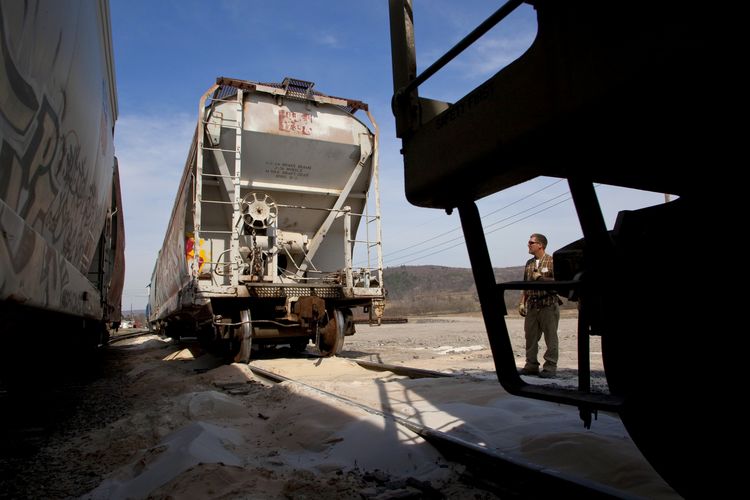A ballot on fracking in Colorado is being closely watched by investors after a sell-off in stocks and bonds of some oil & gas exploration companies over worries that future drilling will be severely restricted.
A vote on Proposition 112 is due Tuesday as part of mid-term elections, and concerns it will pass have hit companies including Anadarko, Noble Energy and Extraction Oil & Gas.
Colorado voters are deciding whether to limit oil and gas development in the state.
“It is a potential industry killer on a development basis going forward if land is no longer drillable,” Blake Haxton, a research associate at Diamond Hill Capital Management, told IFR.
“But there are many moving parts that makes it difficult to predict how this will play out if it does pass.”
A yes vote will not impact wells already in production, but will support an initiative that new development projects, including fracking, be a minimum distance of 2,500 feet from occupied buildings and other areas designated as vulnerable.
Currently new wells must be at least 500 feet from residential buildings and homes, and 1,000 feet for high occupancy buildings including schools and hospitals, analysts at CreditSights said.
One uncertainty is how local governments will deem what is vulnerable.
“The law leaves it up to each municipality to define what vulnerable means. What one county says could be very different from another,” said Haxton.
Analysts at independent research firm CreditSights believe there is a low probability the legislation is passed in its current form, given the hit it would cause to the oil and gas industry in the state and loss of tax revenues and jobs.
“Additionally, there are the industry interest groups and political leaders from both parties actively against the Proposition.”
The Democratic candidate for Colorado governor, Jared Polis, opposes the measure, as does outgoing incumbent, Democrat John Hickenlooper.
MISPRICED RISK
But confusion about what might happen has created mispricing in the bond market, Haxton said.
There have been meaningful price drops in some bonds. The 7.375% 2024 junk bond issued by Extraction Oil & Gas, for example, has dropped roughly 10 points since the start of September.
Extraction has two bonds outstanding, amounting to US$1.15bn in total, according to Refinitiv data.
Other companies he is looking at include SRC Energy, HighPoint Resources and Bonanza Creek.
“We’re looking at some worst case scenarios, and whether those are priced in. If there is a big enough margin of safety around our theory, we may buy,” said Haxton.
“Whatever the outcome, we are expecting further volatility.”
Manuj Nikhanj, President and co-CEO of independent research firm RS Energy, said in an emailed statement that Proposition 112, if passed, will have extremely negative consequences for oil and gas activity in the region.
The majority of the Denver Basin’s current rigs and competitive resources is located within Core Wattenberg, which is home to 90% of Colorado’s current oil production, RS Energy Group said.
The firm estimates roughly 6,500 potential rigs currently in Core Wattenberg. But that would drop by 85% if Proposition 112 is passed.
It’s possible that drilling on new wells could still take place - by using different angles, for example - but that may be less efficient. RS Energy said restricting surface access will force operators to drill sub-optimal wells.
“That could increase breakevens by $7-$10/bbl, further impairing the basin’s competitive position in the L48,” it said.
It’s not clear how individual companies will be impacted though.
Multi-basin operators are responsible for 63% of total Denver Basin production and would be able to shift capital to more competitive plays outside of Colorado, RS Energy said.
Other areas in the L48 include Bakken in Montana and North Dakota and Eagle Ford in South Texas.
A second vote - amendment 74, also taking place Tuesday - is clouding the issue.
That proposes to change the Colorado Constitution, and require private property owners to be compensated when a law or regulation reduces the market value of their property.
As it stands now, private property owners have to prove regulations more or less eradicate the total value of their property to get a payout.
“That amendment (74) needs 55% of the vote to pass, but if it does, the state can’t make changes,” said Haxton.
“It could be a life saver for oil and gas companies. A property owner could sue the state. They can argue that the regulation has reduced the value of their property, as they wanted to sell oil and gas on their land and now they can’t.”
